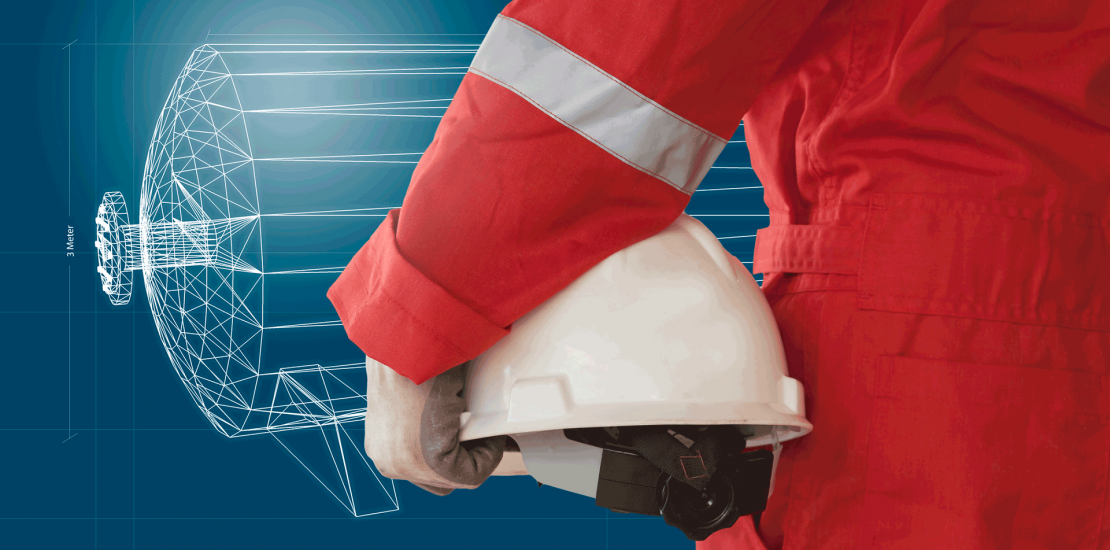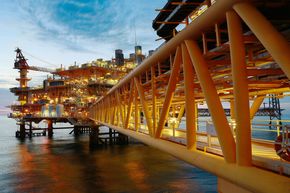All you need to know about Pressure Vessel Design
- February 8, 2022
- Posted by: Velosi Author
- Categories: Engineering, Insights

WHAT IS PRESSURE VESSEL?
Pressure Vessels are containers that are designed to hold liquids, vapors, or gases at high pressures, usually above 15 psi. Examples of common pressure vessels used in the petroleum refining and chemical processing industries include, but are not limited to, storage tanks, boilers, and heat exchangers. Each vessel has its operating limits built-in by design that it has to work under, referred to as its design pressure and design temperature. Operating outside of these limits could damage the equipment and potentially lead to loss of containment or catastrophic failure.
One of the most important pieces of equipment in many industries is a pressure vessel. Pressure vessels are required to maintain the desired pressure level for successful operation of certain applications. These vessels are available in a variety of specifications and with varying capabilities depending on the applications for which they are intended. A consumer can also get a custom pressure vessel designed based on their specific requirements.
Numerous processes need the use of prefabricated pressure vessels. Customized pressure vessels are used in these procedures. However, some customers buy entirely custom pressure vessels and they provide them with better convenience and flexibility than prefabricated pressure vessels. In this article, we’ll explain some reasons why you should choose a custom pressure vessel over a prefabricated one.
- FREEDOM TO CHOOSE THE SUITABLE MATERIAL
Carbon and stainless steel are mostly used for manufacturing pressure vessels since these materials showcase exceptional durability and strength. When a buyer orders a customized pressure vessel, they can choose the material grade depending on their process and application requirements. - SELECT FROM PRODUCT PARAMETERS
Many types of prefabricated pressure vessels serve similar functions. However, these vessels can have different shapes, sizes, resistance to corrosion and pressure ratings. For example, there could be a pressure vessel in the oil and gas industry whose pressure rating level is completely different compared to the one used in the aerospace industry. Therefore, it is essential to customize the vessels depending on the parameter requirements of a particular industry or application.Moreover, by choosing customized pressure vessels, buyers can significantly reduce the chance of corrosion. They can consult different companies who’ll guide them and help them make the right choice. When a pressure vessel is custom made based on parameters required for the application, it leads to better performance for the application. - FREEDOM TO CHOOSE VOLUME THROUGHPUT
With a customized pressure vessel, the buyer can choose desired volume. They can analyse their application requirements and then select the most suitable volume for their application. It is essential for the volume of the pressure vessel to meet the application requirements to ensure an efficient process. An expert can help a buyer select the ideal volume for the optimal performance of their pressure vessel.The reasons discussed above make it clear why many companies are using customized pressure vessels instead of purchasing prefabricated ones. Customized pressure vessels do make a big difference. If you are thinking about buying a customized pressure vessel, it is essential that you get help from the experts.
CHALLENGES IN HIGH PRESSURE VESSELS DESIGN
The pressure vessel industry is one that doesn’t leave any loose ends when it comes to safety. There are a number of strict rules and guidelines that have to be followed. This is because the design and manufacture of high pressure vessels has to be precise; otherwise it can result in fatal accidents.
The ASME has provided a number of standards, which high pressure vessel manufacturers have to adhere to. But like any other industry, despite all precautions being taken, there will always be engineering challenges to face.
- SHELL DESIGN: Whether spherical or cylindrical, shells have to be constructed with the right type of material and thickness. If a vessel shell is made of too thin material for the pressure , the shell may fail leading to possible fatalities. In addition, if the wrong material is selected for the process, failures may result from this too. Also, the demands for vessels that can take pressures higher than 10,000 psi are increasing, which is a challenge for high pressure vessel manufacturers.
- SOLUTION: Once the requirements of the client are understood, a variety of solutions can be used:
- Spherical shaped cylinders have almost twice the strength of cylindrical pressure vessels.
- Custom pressure chambers can be built for extremely high pressures.
- Vessel materials can be selected that have increased tensile strength resulting from specialized heat- treatment processes.
- Specialized auto testing can be also be carried out
- SIZE: Expenses of high pressure vessels increase with the size, pressure, and configuration. Many clients have custom demands, and many a time, the size and shape may be difficult to produce.
- SOLUTION: Numerous manufacturers of high pressure vessels have established in house capabilities for design, fabrication, manufacturing and testing.This is often a better choice than outsourcing to a third party. It enables manufactures to devise methods that aid in the timely completion of the final project.
- NOZZLE CRACKS: During operation it is possible that the nozzle of the pressure vessel can crack. There are many reasons for this:
- The increase in temperature during normal operation
- A poor functioning support system
- Lack of adequate weld filler when welding the nozzle to the vessel
- SOLUTION:
- Create support systems that will allow the vessel to expand and contract.
- Use the correct weld filler when adding the nozzle
- Put the vessel through rigorous quality testing
Contact us to find out more.



